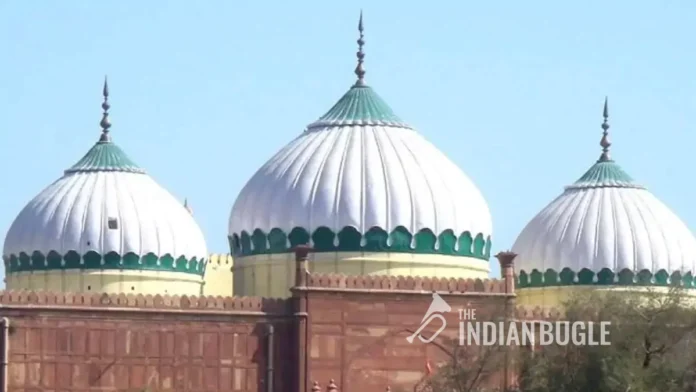New Delhi, January 16, 2024 – The Supreme Court has temporarily halted the survey of the 17th-century Shahi Idgah mosque in Mathura, Uttar Pradesh, following claims that it was constructed on the birthplace of Lord Krishna. The Allahabad High Court’s order to appoint a commissioner for the survey, similar to the one conducted at the Gyanvapi Mosque in Varanasi, has been put on hold.
| Key Details | |
|---|---|
| Location | Mathura, Uttar Pradesh |
| Dispute | Shahi Idgah mosque alleged to be built on Lord Krishna’s birthplace |
| Legal Action | Supreme Court pauses survey ordered by Allahabad High Court |
| Petitioners | Hindu outfits seeking ownership of the contested land |
| Evidence | Lotus carvings and ‘sheshnag’ shapes presented as proof of the temple’s existence |
| Legal Basis | Places of Worship Act of 1991 cited by the mosque committee |
The Supreme Court expressed concerns over the lack of specificity in the purpose of appointing the commissioner, deeming it “vague.” Justices Sanjiv Khanna and Dipankar Datta emphasized the need for a clear and specific request, stating that leaving everything to the court’s discretion is incorrect.
The dispute over the Shahi Idgah mosque involves Hindu outfits contending that it was built on the remnants of the Katra Keshav Dev temple, considered to be the birthplace of Lord Krishna, also known as “Krishna Janmabhoomi.” Multiple legal cases are currently underway, with Hindu petitioners seeking ownership of the land on which the mosque stands.
In December, a local court admitted the plea of Hindu petitioners demanding a survey, alleging that the centuries-old mosque was constructed by demolishing the Katra Keshav Dev temple, purportedly on the orders of Mughal emperor Aurangzeb. The Uttar Pradesh Sunni Wakf Board and the Idgah committee challenged this plea in the High Court.
The Hindu petitioners presented the lotus carvings on the mosque and shapes resembling the ‘sheshnag’ (snake demigod) as evidence that the mosque was built over a pre-existing temple. They argue that these carvings are indicative of the temple’s presence before the mosque’s construction.
The mosque committee, in response, urged the court to dismiss the petition, citing the Places of Worship Act of 1991. According to this act, the religious status of any place of worship is maintained as it was on Independence Day, August 15, 1947.
This development underscores the complexity of the Shahi Idgah-Krishna Janmabhoomi dispute, with legal proceedings poised to unfold as the Supreme Court reevaluates the necessity and specificity of the appointed commissioner for the survey.
